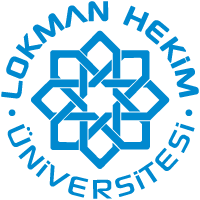Promoting rational antibiotic use in Turkey and among Turkish migrants in Europe - implications of a qualitative study in four countries.

Göster/
Tarih
2020-11-11Yazar
Westerling, R
Daryani, A
Gershuni, O
Czabanowska, K
Brand, H
Erdsiek, F
Aksakal, T
Uner, S
Karadag Caman, O
Ozcebe, H
Brzoska, P
Üst veri
Tüm öğe kaydını gösterÖzet
Background: Antimicrobial resistance is considered one of the major threats to global health. The emergence of
resistant microorganisms is a consequence of irrational use of antibiotics. In Turkey, the consumption of antibiotics
is relatively high and antibiotics are among the most commonly used drugs. However, Turkey has adopted new,
more restrictive policies and regulations on antibiotics. In addition, Turkish migrants to EU countries, such as
Germany, the Netherlands and Sweden, may encounter health systems that promote a more restrictive and rational
antibiotic use.
The objective of this paper was to explore the variation in implemented policies related to rational antibiotic use
that citizens in Turkey and Turkish migrants in Germany, the Netherlands and Sweden are subjected to and to
discuss the implications for the promotion of rational antibiotic use.
Data were collected through focus groups and individual interviews with citizens, physicians and pharmacists in the
four countries. In total, 130 respondents were interviewed. Content analysis was used.
Results: Three relevant themes were identified: Implementation of regulations and recommendations, Access to
antibiotics and Need for health communication. Irrational use of antibiotics was reported mainly in Turkey. While it
had become less likely to get antibiotics without a prescription, non-prescribed antibiotics remained a problem in
Turkey. In the three EU countries, there were also alternative ways of getting antibiotics. Low levels of knowledge
about the rational antibiotic use were reported in Turkey, while there were several sources of information on this in
the EU countries. Communication with and trust in physicians were considered to be important. There were also
system barriers, such as lacking opportunities for physicians to manage care in accordance with current evidence in
Turkey and factors limiting access to care in EU countries.
Aşağıdaki lisans dosyası bu öğe ile ilişkilidir:

DSpace@LokmanHekim by Lokman Hekim University Institutional Repository is licensed under a Creative Commons Attribution-NonCommercial-NoDerivs 4.0 Unported License..













